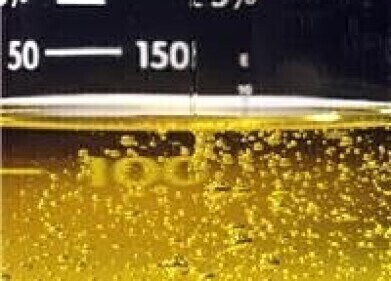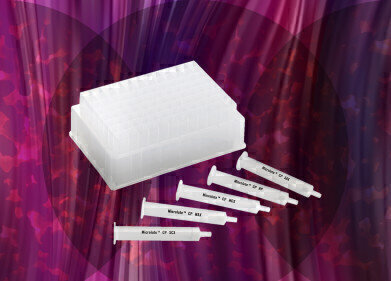Solid Phase Extraction (SPE)
Inner workings of antibody found, may help cancer sufferers
Nov 28 2012
An antibody that attaches itself to the IGF-1 receptor on the cell surface - a step which is critical to the development of cancer - has proven difficult to reproduce by several drug companies thus far.
However scientists at the Karolinska Institutet have now figured out how these types of antibodies work.
They can also clarify why only some cancer patients respond to IGF-1 blockers during clinical trials and present a way in which drugs of this type can potentially help more cancer patients.
The communication between cells is done through thousands of minute receptors which are a part of numerous physiological processes, such as heart rate, taste and smell perception.
Kinase receptors (RTKs) are made from about 24 of these receptors that form their own group and are involved in producing cancer cells.
The IGF-1 receptor is especially significant for the survival of cancer cells.
As soon as it comes across the right hormone, the cancer cell opens a myriad of communication channels that assist with its growth, allowing it to rapidly divide and protect itself against any cancer treatment.
Finding a way to block this receptor with an antibody that binds to it and makes it unattainable to IGF-1 has been a highly sought key to a likely cancer treatment. It is hoped that when found, it will lead to killing off tumour cells.
Researchers from the study have confirmed that antibody treatment does actually stop the communication channels of a cell from opening; however the MEK channel was very powerfully stimulated by the treatment, with the antibodies being as efficient in this as the hormone was itself and actively assisting the cancer cells to thrive.
An amalgamation of MEK inhibitors with IGF-1 blockers might be the answer to the success of this treatment.
"We've seen in the laboratory that cell lines treated in this way no longer manage to divide. When they die of old age there is no regrowth, so we've seen in the laboratory environment how cancer cells die out of their own accord," stated Dr Leonard Girnita, docent of pathology at the Department of Oncology-Pathology at the Institute.
Posted by Fiona Griffiths
Digital Edition
Chromatography Today - Buyers' Guide 2022
October 2023
In This Edition Modern & Practical Applications - Accelerating ADC Development with Mass Spectrometry - Implementing High-Resolution Ion Mobility into Peptide Mapping Workflows Chromatogr...
View all digital editions
Events
ACS National Meeting - Fall 2024
Aug 18 2024 Denver, CO, USA
Sep 04 2024 Chiba, Tokyo, Japan
Sep 04 2024 University of Warwick, Coventry, UK
Sep 10 2024 Rockville, MD, USA
Plastics Recycling World Expo Europe
Sep 11 2024 Brussels, Belgium














